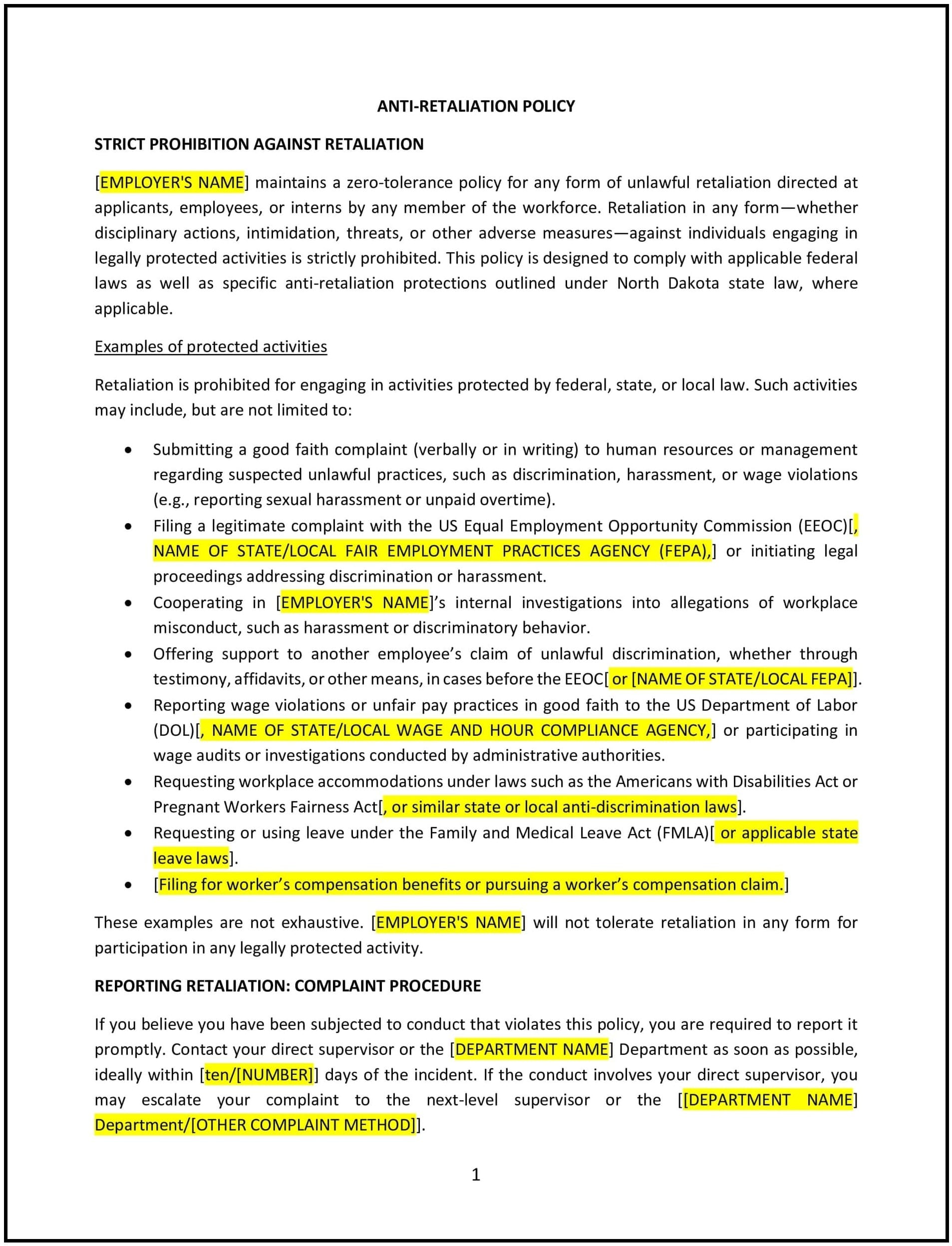Anti-retaliation policy (North Dakota): Free template
Got contracts to review? While you're here for policies, let Cobrief make contract review effortless—start your free review now.

Customize this template for free
Anti-retaliation policy (North Dakota)
This anti-retaliation policy is designed to help North Dakota businesses establish clear protections for employees who report misconduct, workplace violations, or participate in investigations. The policy outlines prohibited retaliatory actions, reporting procedures, and corrective measures to ensure employees can report concerns without fear of adverse consequences.
By implementing this policy, businesses can foster a culture of transparency, reduce legal risks, and encourage ethical workplace behavior.
How to use this anti-retaliation policy (North Dakota)
- Define retaliation: Identify prohibited retaliatory actions, such as termination, demotion, harassment, or other adverse employment actions against employees who report workplace issues.
- Establish reporting procedures: Require employees to report suspected retaliation to HR, management, or an anonymous reporting system.
- Implement investigation protocols: Outline how retaliation claims will be reviewed, documented, and resolved.
- Provide confidentiality protections: Ensure all reports are handled discreetly to protect employee privacy.
- Enforce disciplinary actions: Define consequences for retaliation, including warnings, suspension, or termination.
- Promote a culture of accountability: Encourage management and leadership to support employees who raise concerns in good faith.
- Review regularly: Update the policy based on workplace feedback and North Dakota legal requirements.
Benefits of using this anti-retaliation policy (North Dakota)
Implementing this policy provides several advantages for North Dakota businesses:
- Encourages ethical workplace behavior: Supports employees in reporting concerns without fear.
- Reduces legal risks: Helps businesses align with federal and state whistleblower protections.
- Strengthens company culture: Promotes trust and accountability within the organization.
- Supports compliance with employment laws: Aligns with North Dakota workplace regulations on retaliation.
- Reflects North Dakota-specific workplace considerations: Addresses industry best practices and employee protections.
Tips for using this anti-retaliation policy (North Dakota)
- Train managers on anti-retaliation laws: Ensure leadership understands how to handle complaints without retaliatory actions.
- Provide multiple reporting options: Allow employees to report concerns through HR, anonymous hotlines, or third-party compliance platforms.
- Investigate complaints promptly: Address retaliation concerns immediately to prevent further issues.
- Document all reports and outcomes: Maintain detailed records of complaints, investigations, and corrective actions taken.
- Adjust as needed: Update the policy based on workplace needs and legal developments.